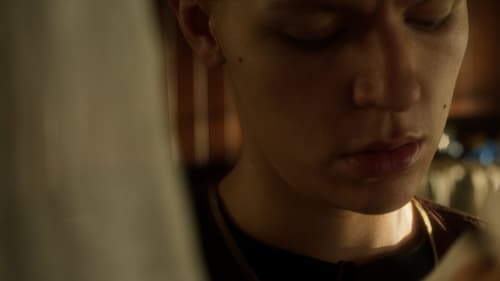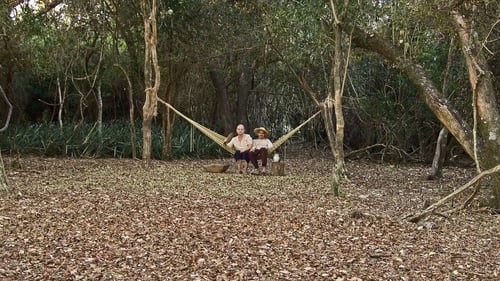Paz Encina
Birth : 1971-07-09, Asunción, Paraguay
History
Paz Encina (born July 9, 1971; Asunción) is a Paraguayan director and screenwriter, known for her drama film Hamaca Paraguaya (2006), winner of the FIPRESCI Award of the Cannes Film Festival.
She was born in Asuncion, Paraguay. Studied at the Universidad del Cine of Buenos Aires, where she obtained a bachelor's degree in cinematography. Hamaca Paraguaya was her first feature film. She previously made short films like La siesta (1997), Los encantos del Jazmín (1998) y Supe que estabas triste (2000).

Producer
Eami means ‘forest’ in Ayoreo. It also means ‘world’. The story happens in the Paraguayan Chaco, the territory with the highest deforestation rate in the world. 25,000 hectares of forest are being deforested a month in this territory which would mean an average of 841 hectares a day or 35 hectares per hour. The forest barely lives and this only due to a reserve that the Totobiegosode people achieved in a legal manner. They call Chaidi this place which means ancestral land or the place where we always lived and it is part of the "Ayoreo Totobiegosode Natural and Cultural Heritage". Before this, they had to live through the traumatic situation of leaving the territory behind and surviving a war. It is the story of the Ayoreo Totobiegosode people, told from the point of view of Asoja, a bird-god with the ability to bring an omniscient- temporal gaze, who becomes the narrator of this story developed in a crossing between documentary and fiction.

Screenplay
Eami means ‘forest’ in Ayoreo. It also means ‘world’. The story happens in the Paraguayan Chaco, the territory with the highest deforestation rate in the world. 25,000 hectares of forest are being deforested a month in this territory which would mean an average of 841 hectares a day or 35 hectares per hour. The forest barely lives and this only due to a reserve that the Totobiegosode people achieved in a legal manner. They call Chaidi this place which means ancestral land or the place where we always lived and it is part of the "Ayoreo Totobiegosode Natural and Cultural Heritage". Before this, they had to live through the traumatic situation of leaving the territory behind and surviving a war. It is the story of the Ayoreo Totobiegosode people, told from the point of view of Asoja, a bird-god with the ability to bring an omniscient- temporal gaze, who becomes the narrator of this story developed in a crossing between documentary and fiction.

Director
Eami means ‘forest’ in Ayoreo. It also means ‘world’. The story happens in the Paraguayan Chaco, the territory with the highest deforestation rate in the world. 25,000 hectares of forest are being deforested a month in this territory which would mean an average of 841 hectares a day or 35 hectares per hour. The forest barely lives and this only due to a reserve that the Totobiegosode people achieved in a legal manner. They call Chaidi this place which means ancestral land or the place where we always lived and it is part of the "Ayoreo Totobiegosode Natural and Cultural Heritage". Before this, they had to live through the traumatic situation of leaving the territory behind and surviving a war. It is the story of the Ayoreo Totobiegosode people, told from the point of view of Asoja, a bird-god with the ability to bring an omniscient- temporal gaze, who becomes the narrator of this story developed in a crossing between documentary and fiction.

Screenplay
Paraguay, late 1950s and early 1960s, and much later. During the stroniste dictatorship, several militants of the opposition MOPOCO party were exiled. Based in different parts of Argentina, they continue militating through letters. Today, your grandchildren read these letters.

Director
Paraguay, late 1950s and early 1960s, and much later. During the stroniste dictatorship, several militants of the opposition MOPOCO party were exiled. Based in different parts of Argentina, they continue militating through letters. Today, your grandchildren read these letters.

Director
Archival super 8 footage combined with superimpositions of trees and plants

Writer
The culmination of Encina’s work with the so-called Archives of Terror—meticulous records kept by the government of dictator Alfredo Stroessner. Encina’s longstanding political and aesthetic research project focused on how a community can cope with such detailed accounts of human rights violations. Memory and history, the personal and the political interweave in this experimental documentary that explores the consequences of Stroessner’s decades-long state terror regime and how it continues to mark the Paraguayan people. Constructed from the testimonies, visual material, and memories of the children of Agustín Goiburú, an opposition leader who disappeared in 1979, the documentary is a provocative reflection on how film might respond to political circumstances amid a surfeit of images of terror.

Director
The culmination of Encina’s work with the so-called Archives of Terror—meticulous records kept by the government of dictator Alfredo Stroessner. Encina’s longstanding political and aesthetic research project focused on how a community can cope with such detailed accounts of human rights violations. Memory and history, the personal and the political interweave in this experimental documentary that explores the consequences of Stroessner’s decades-long state terror regime and how it continues to mark the Paraguayan people. Constructed from the testimonies, visual material, and memories of the children of Agustín Goiburú, an opposition leader who disappeared in 1979, the documentary is a provocative reflection on how film might respond to political circumstances amid a surfeit of images of terror.

Director
Weaving together original audio and archival materials from the 35-year period in which Paraguay was ruled by military dictator Alfredo Stroessner, this film reconstructs the reflections of a man who has been sentenced to house arrest.

Director
Exile / 35 years / Return / Interrogation / order / Police / Where does your daughter live? / The interrogation / The fear / My daughter?...

Director
The dictatorship / 35 years / The Agrarian Leagues / The denunciation / The Caaguazú case / The police / The taking of a bus / The repression / The denunciation / Apolonia / 12 years / 10 dead, 6 arrested and 4 fugitives / Apolonia / The denunciation / 5 gunshots / Apolonia / 12 years... / A society.... Alien ... and Familiar…

Screenplay
"A dialogue, in Guarani and Spanish, between two brothers trying to decide how to survive the war waged by Stroessner's troops in their isolated land. With a stunning soundtrack and a visual language that defies narrative, the film confronts us with the fundamental question of whether survival is to be found in migration or armed opposition." - From MoMA

Director
"A dialogue, in Guarani and Spanish, between two brothers trying to decide how to survive the war waged by Stroessner's troops in their isolated land. With a stunning soundtrack and a visual language that defies narrative, the film confronts us with the fundamental question of whether survival is to be found in migration or armed opposition." - From MoMA

Screenplay

Director

Screenplay

Director

Screenplay
A rarely-screened trilogy of short films by the great Paraguayan filmmaker Paz Encina.

Director
A rarely-screened trilogy of short films by the great Paraguayan filmmaker Paz Encina.

Writer
Set in 1935, a couple of aged smallholders are waiting for their son, for rain, for better days.

Director
Set in 1935, a couple of aged smallholders are waiting for their son, for rain, for better days.

Writer

Screenplay

Director

Screenplay
A family photo, the sound of the oncoming storm, the cat wandering the kitchen, a man alone in this space. Paz Encina’s early melancholic short is a conversation not shown on screen. Has it already occured or does it take place after this brief moment in time? Using only subtitles and visual language, SUPE QUE ESTABAS TRISTE creates an array if emotions without ever having to “show” anything.

Director
A family photo, the sound of the oncoming storm, the cat wandering the kitchen, a man alone in this space. Paz Encina’s early melancholic short is a conversation not shown on screen. Has it already occured or does it take place after this brief moment in time? Using only subtitles and visual language, SUPE QUE ESTABAS TRISTE creates an array if emotions without ever having to “show” anything.

Screenplay
A father and a mother await the arrival of a son on a rainy day.

Director
A father and a mother await the arrival of a son on a rainy day.

Director

Director



